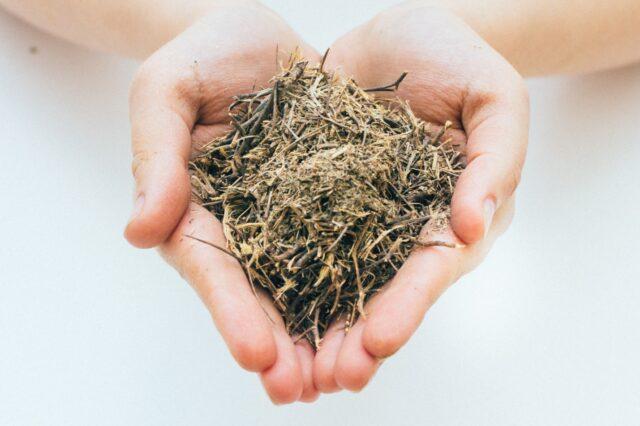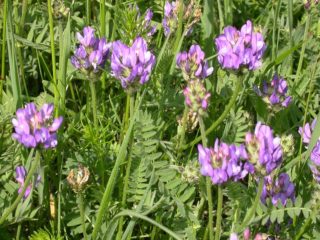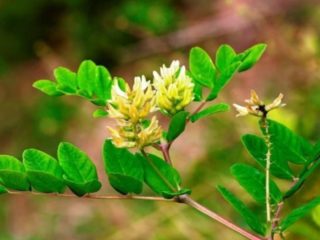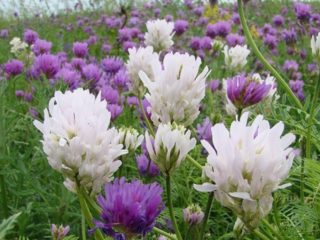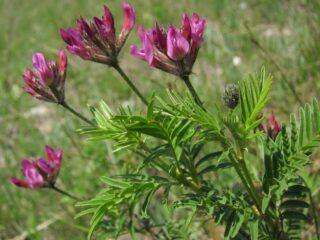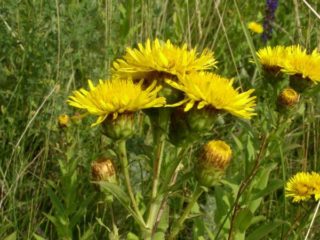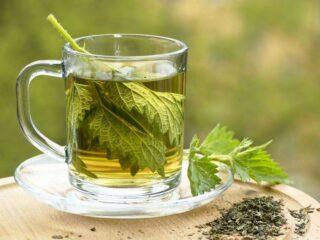Content
- 1 What it looks like and where it grows
- 2 Chemical composition
- 3 The healing properties of astragalus membranous
- 4 Cooking methods
- 5 The use of the herb Astragalus membranous in folk medicine
- 6 Contraindications to the use of astragalus membranous
- 7 Collection and procurement
- 8 Conclusion
- 9 Reviews of astragalus membranous
The healing properties of astragalus membranous and contraindications are associated with the rich chemical composition of this plant. It includes trace elements, vitamins and biologically active substances. This allows the herb to be used for the treatment and prevention of viral, oncological diseases, as a sedative and laxative. Astragalus is also often recommended for the treatment of impotence.
What it looks like and where it grows
Astragalus (Astragalus) is a large genus of plants from the legume family (Fabaceae). One of the valuable representatives is Astragalus membranaceus (Astragalus membranaceus), which is named so because of the presence of membranes in the fetus.
A perennial herb of low height - from 30 to 70 cm. Looks like a compact, well-leafy, bright green bush with yellow flowers. Leaves are oblong, narrow, up to 10–12 cm long. Peduncles are single, multi-flowered, rise up to 70 cm. Inflorescences are yellow, appear in the first half of summer. Fruits are formed closer to mid-August. Stems are erect, glabrous. The roots are thick and well developed.

Astragalus membranous blooms in summer: in June and July
The plant is ubiquitous. It is found in the temperate climatic zone and in the tropics of the Northern Hemisphere, as well as in the foothills of South America. Prefers mixed, birch, pine and larch forests. It is often found on the shores of lakes, because it likes good moisture and light shading.
In Russia, it can be found in the south of Western and Eastern Siberia, as well as in the Amur region. In neighboring countries, it is found on the territory of Mongolia, Kazakhstan, China and Korea.
Chemical composition
The benefits of membranous astragalus are determined by its chemical composition. Plant tissues contain substances with high biological activity:
- polysaccharides;
- flavonoids;
- tannins;
- essential oils;
- organic acids;
- vitamins C and E;
- saponins;
- steroids;
- lignans;
- coumarins;
- triterpenoids;
- pterocarpans;
- trace elements (selenium, zinc, cobalt, sodium, copper, calcium, vanadium, phosphorus).
The healing properties of astragalus membranous
Astragalus membranous has a beneficial effect on the body. It is used by:
- As a tonic and tonic. Stimulates the production of hemoglobin.
- As an anti-cancer collection. Under the influence of the herb, the destruction of cancer cells and their accumulations occurs in the early stages of development.
- As a sedative. The broth relaxes the nervous system, relieves anxiety.
- To strengthen and expand blood vessels. The infusion helps to normalize blood pressure and heart rate.
- As an antioxidant. Due to the presence of selenium, taking Astragalus prevents cancer and promotes rejuvenation.
- As an antiseptic. There is a disinfection of the skin surface, active healing of purulent wounds.
Therefore, preparations based on this herb are used as an aid for the treatment of various pathologies and disorders:
- hypertension;
- vascular atherosclerosis;
- diabetes;
- cancer of the stomach, duodenum, liver, as well as lymphoma, neuroblastoma and leukemia;
- boils;
- abscesses.

The components of the membranous astragalus help in the prevention and treatment of cancer
Useful properties of astragalus membranous root for men
In folk medicine, membranous astragalus has been used for a long time as a remedy for the treatment of sexual impotence (impotence). The healing properties are explained by the fact that it tones the body and normalizes blood pressure. Thanks to the increased blood flow, sexual function is also restored. Astragalus is useful as a general tonic. This is especially important for men in manual labor.
Cooking methods
Dried webbed astragalus root is sold in pharmacies (standard packaging of 25 g). You can prepare it for internal and external use in different ways - get a tincture, extract, decoction or powder. Standard course - 30 days with a break of 2 months. It is recommended to complete 4 cycles per year.
Astragalus membranous tincture
On the basis of raw materials of membranous astragalus, you can prepare an alcoholic tincture. The instruction is as follows:
- At 1 st. l. root will need 10 tbsp. l. medical alcohol (96%).
- Close the glass container with a lid and leave for 10 days in a dark place, shaking occasionally.
- The resulting mixture is filtered.
- Take 25 drops 3 times a day half an hour before meals, dissolving in 50 ml of water.
Astragalus membranous root extract
Pharmacies sell a highly purified extract of membranous astragalus root. It is produced industrially and packaged in vegetable capsules. Apply 1-3 pieces three times a day during meals.
At home, you can prepare an aqueous extract according to the following instructions:
- Take 1 tbsp. l. crushed raw materials.
- Pour 400 ml of boiling water.
- Insist in a thermos overnight until it cools completely.
- Strain and take one glass a day (divided into 3 doses) half an hour before meals.
Decoction
The simplest option, which is recommended in many instructions, is a decoction of astragalus membranous.
Cooking algorithm:
- Dry roots (1 tbsp. L.) Are poured into a container with boiling water (0.5 l), covered with a lid and infused for an hour.
- Cool and filter.
- Take 3 times a day half an hour before lunch. Quantity for one dose - 3 tbsp. l.
Powder
Astragalus membranous is also used in dried form (pictured). To do this, you do not need to prepare it (brew in water or insist on alcohol). It is enough to take one teaspoon of raw materials and mix with the same amount of honey of any kind.
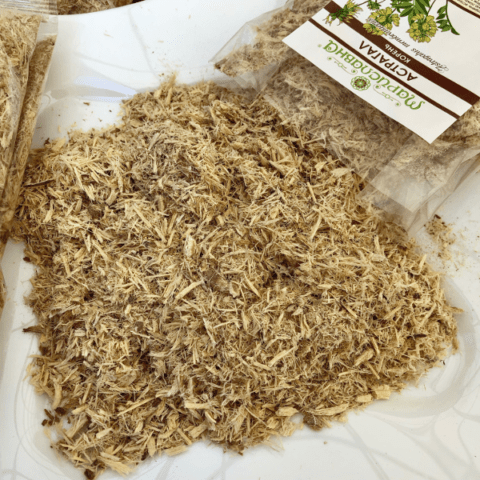
The dried root of membranous astragalus is used 1 g three times a day half an hour before meals
The use of the herb Astragalus membranous in folk medicine
Most often, the remedy is used internally in the form of tea. It is advisable to drink it before meals (20-30 minutes). If you use membranous astragalus regularly (2-3 times a day), then the strengthening effect can be felt after 3 weeks. The standard course duration is 1 month.
Hypertension treatment
Astragalus membranous helps to normalize high blood pressure. For treatment it is necessary:
- Take 2 tbsp. l. chopped root or leaves and pour 200 ml of hot (no more than 80 degrees) water.
- Put in a water bath and heat over low heat for 15–20 minutes.
- Remove from heat, cool and strain.
- Take 2 tbsp. l. before meals 3 times a day.The course of treatment can be increased to 45 days, after which a pause can be made for 2 months.
Treatment of atherosclerosis
The substances contained in the root of the membranous astragalus make it possible to clear the blood vessels of cholesterol. To do this, use an alcoholic infusion. Withstand it for at least two weeks. Take 30 drops 3 times daily before meals. The course lasts 10 days, then a break for 10 days and again continue the cycle.
Fortifying tea
Astragalus membranous is used as a tonic, strengthening immunity and improving blood circulation. It is very easy to prepare it:
- Take 2 tsp. herbs in 1 cup of boiling water.
- Insist for several minutes under a closed lid.
Then they drink it like regular tea, preferably 2-3 times a day. The entire course lasts one month. The herbal drink helps to avoid respiratory infections.

Astragalus tea can be used as an additional means of strengthening the immune system
Constipation treatment
The herb is used as a natural laxative. Cooking algorithm:
- Pour one tablespoon of the roots with a glass of boiling water.
- Insist for an hour, cool, filter.
They give a cleansing enema based on this solution. Usually, the effect occurs in a day, the maximum duration of the course is 3 days. Carry out one procedure per day.
External use
For the treatment of boils, abscesses and abscesses, a strong infusion of astragalus is prepared:
- Use 2 tbsp. l. 200 ml of boiling water.
- Insist at least 6 hours in a warm place.
Moisten gauze in liquid and put a compress on the affected area for several hours (preferably at night). The duration of the treatment is unlimited. The herbal infusion can be used until complete recovery.
Contraindications to the use of astragalus membranous
Astragalus membranous is a popular remedy that has few contraindications. This herb should not be used in such cases:
- individual intolerance, allergic reactions;
- the period of pregnancy and lactation (any stage);
- general serious condition against the background of serious illnesses;
- fever.
Collection and procurement
It is easy to distinguish membranous astragalus from other species by its yellow flowers. The collection of roots is carried out in late autumn. To do this, they go to places far from industrial enterprises, highways and other polluting objects.
You need to act carefully so as not to damage the roots. They are taken out of the ground and immediately shaken off, put into a bag. Houses are washed from the remnants of the earth, laid out in a thin layer and dried in a well-ventilated area. The optimum temperature is + 25-28 ° С. To speed up the process, the rhizomes of the membranous astragalus can be put in the dryer, setting the temperature to no higher than +30 ° C.
Then the roots need to be chopped with a sharp knife so that they turn into a mixture that resembles straw. Packed in natural fabric bags and stored at room temperature and moderate humidity. Expiration date - no more than 12 months.

The aerial part of the plant (stems, leaves) is harvested during the flowering of membranous astragalus, i.e. in June or July
Conclusion
The healing properties of Astragalus membranous and contraindications must be considered before using the herb. Infusions, decoctions and other forms are used as an additional treatment. Subject to the dosage and other rules, the positive effect is noticeable after a few weeks.
Reviews of astragalus membranous
